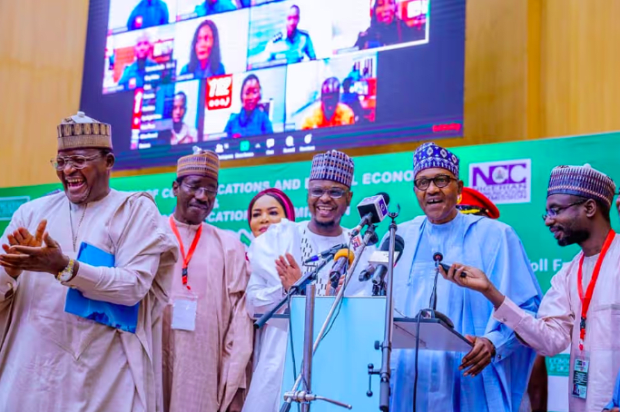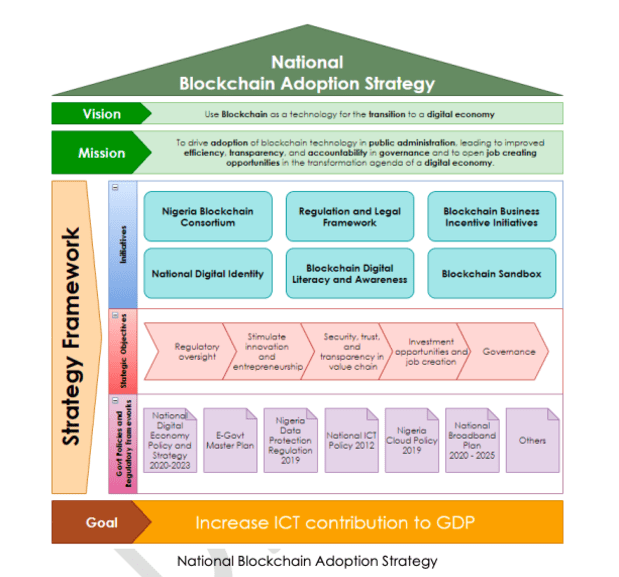That is an opinion editorial by Heritage Falodun, a Bitcoin guide and pc scientist primarily based in Nigeria.
On Could 3, 2023, throughout a federal govt council assembly presided over by President Muhammadu Buhari on the council chamber in Abuja, the Nigerian government approved the official use of blockchain technology in the country.
Nigeria’s minister of communications and digital financial system, professor Ali Isa Pantami, disclosed the official approval of “The National Blockchain Policy For Nigeria,” stating that the “the brand new coverage was a product of consultations with 56 establishments and personalities whose finish objective is to institutionalize blockchain expertise in Nigeria’s financial system and safety sectors.”

Nigeria’s Historical past With Bitcoin Regulation
Taking a deep dive into understanding the disposition of the Nigerian authorities towards blockchain-dependent improvements over time will paint a transparent image of how essential and necessary this current coverage and federal approval is for the Bitcoin house in Nigeria and Africa at massive.
On January 12, 2017, the Central Financial institution of Nigeria (CBN) issued a round which cautioned monetary establishments and most people concerning the dangers related to blockchain-dependent applied sciences, similar to Bitcoin. Constructing on that earlier warning and directive, on February 5, 2021, the Central Financial institution of Nigeria formally prohibited banks from facilitating any Bitcoin- and crypto-related transactions by reissuing the round — a ban that continues to be unreversed as on the time of writing.
This restrictive coverage come at a time when adoption of Bitcoin and shitcoin-related actions was on the rise in Nigeria, and it was a restriction that additional fueled the usage of Bitcoin and stablecoins as customers who’re wallowing within the pains of economic restriction more and more found the ability of decentralized Bitcoin improvements, like peer-to-peer (P2P) marketplaces.
Amid all of those impromptu regulatory measures, CBN was apparently busy creating what it thought of a substitute for shitcoins: a government-controlled digital forex known as the e-naira, which was formally launched on the October 25, 2021, unequivocally constructed on a centralized system, not a decentralized blockchain like Bitcoin’s. In the meantime, Nigeria’s Safety And Change Fee (SEC) was occupied with creating coverage frameworks for token-issuance platforms and exchanges.
All these regulatory modifications weren’t unconnected to the federal government’s consciousness of simply how thriving the blockchain trade is in Africa’s most populous nation.

What Does This Imply For Bitcoin In Nigeria?
At this level, one will naturally ask what one other regulatory replace within the nationwide blockchain coverage means for Bitcoin.
A fast however detailed response can be: That is positively a welcomed growth for Bitcoin advocates within the nation and one of many presumably many steps that we’d witness in the correct route.
From my interpretation, this coverage is targeted extra on giving a direct authorities overview to related regulatory our bodies such because the Nationwide Info Expertise Growth Company (NITDA), CBN, SEC, the Nigerian Communications Fee (NCC) and the Nationwide Universities Fee (NUC), amongst many others who are actually anticipated to develop extra detailed regulatory frameworks from utilizing blockchain-based improvements like Bitcoin. The federal government is transferring from being completely repelled by or antagonistic about Bitcoin-, blockchain- and crypto-related actions to now accepting them by default and making a regulatory atmosphere for them to maneuver ahead.
And whereas altcoins and different growth and merchandise depending on blockchains excluding Bitcoin nonetheless stand an opportunity to stay regulated and subjected to the directives of those incoming rules, Bitcoin uniquely repels such rules.
As a stakeholder within the African Bitcoin house, I have to confess that constant readability from governments is not going to solely assist in driving adoption however can even create an enabling atmosphere for Nigerians to include decentralized blockchain expertise, like Bitcoin, into scaling their companies and methods of life, whereas opening quite a few authorized alternatives for everybody.
Because the trade retains shaping up, maintain tabs on the house, as Nigeria President-Elect Bola Tinubu has promised to allow the prudent use of blockchain expertise and cryptocurrencies within the nation’s banking and monetary sector. My fingers stay crossed till we expertise full implementation of Bitcoin-friendly rules in Nigeria.
This can be a visitor put up by Heritage Falodun. Opinions expressed are completely their very own and don’t essentially replicate these of BTC Inc or Bitcoin Journal.
